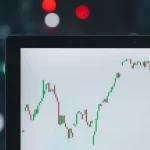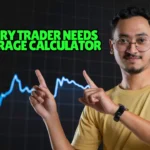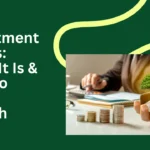A Trader’s success is primarily determined by his or her trading discipline. Seventy percent of forex traders lose money, while fifteen percent make a profit.
The remaining 15% of forex traders succeed because they maintain a consistent level of control that contributes to successful trading. It’s just about allowing the rule of averages to work in your favor when it comes to trading.

There is no such thing as a quick fix when it comes to profitable trading. You must exchange a validated forex trading broker strategy repeatedly to perform well enough to make an overall benefit over a series of trades.
Try Not To Predict Any Market Shift
Catching the tops and bottoms is not a good idea! Close major market highs and bottoms, you might want to set up for counter-trend trades. You may be tempted to jump into any business you come across to avoid missing out on any potential gains.
Trying to capture the market’s tops and bottoms is akin to trying to prevent a running bull or bear in the hopes that it will turn around. Would it seem to be a gamble? Yes, it certainly is!
Do Not Analyse Until You Are Almost Anxious
Since they over-analyze, traders often procrastinate and lose out on lucrative transactions. Before entering a trade, some people wait for the right price to enter (which never came), while others wait for all of the metrics to line up in their favor. I’m not suggesting that we abandon our trading strategy.
What I’m trying to say is that you’ll never be right until you make that deal, and then you have to figure out how to do it. Get out and cut your losses if you’re mistaken.
Per Trade, Do Not Put More Than 5% Of Your Money At Risk
Proper risk management entails trading within the confines of the portfolio size. A good rule of thumb is to gamble no more than 5% of your total assets. We won’t win 100% of our trades because we don’t have complete leverage over the economy.
Instead, we should strive to have net earnings in our bank account at the end of each month. You can lose all of your winnings from the previous month on a single trade if you don’t cap the exposure or keep your trading size consistent, or you can get a margin call on a single over-leveraged transaction if you don’t.
A Trader’s Job Is To Respond, Not To Forecast
Instead of guessing where the price will go, traders can look for signs or clues from the market that indicate the next likely step. Our job is to seize these opportunities and ride with them.
Stick To Your Trading Strategy At All Times
You are biassed whether you try to sell or purchase a particular pair based on trading calls you see on blogs or friends advising you the team is overbought/oversold.
It would help if you always were on the lookout for confluence in our area. When the majority, if not all, of the conditions, have been met, and technical information is available, you can proceed with the trade based on your research.





